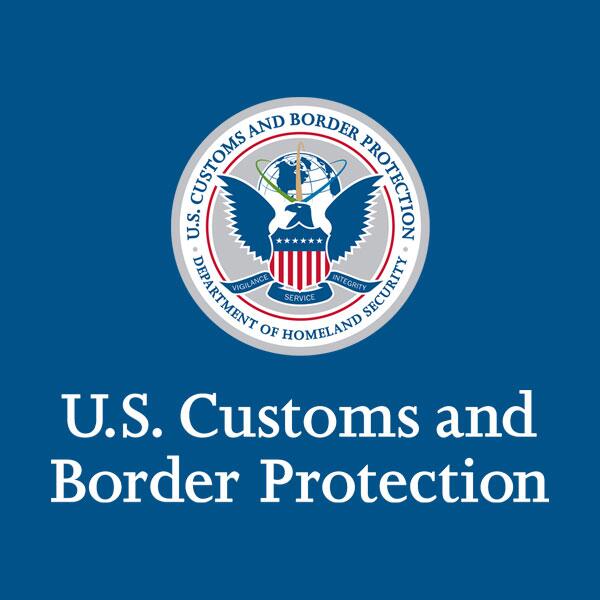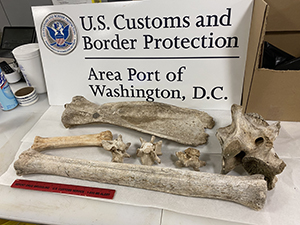STERLING, Va. – There’s nothing funny about the bones that U.S. Customs and Border Protection agriculture specialists recently discovered in the baggage of a Virginia woman at Washington Dulles International Airport.
During a secondary baggage examination on November 10, CBP agriculture specialists discovered bones that the Fauquier County, Va., woman admitted were giraffe and zebra bones she found in Kenya and kept as souvenirs. CBP detained the bones and checked with U.S. Fish and Wildlife Service (USFWS) inspectors on admissibility.
On November 17, USFWS inspectors reported that the bones violated provisions of the Convention on International Trade in Endangered Species of Wild Fauna and Flora (CITES), the Endangered Species Act (ESA), and the Lacey Act. USFWS directed CBP to seize the bones.
The woman, whose name CBP is not releasing because she was not criminally charged, was initially referred to a secondary agriculture examination for declaring that she possessed a small Acacia tree twig. She then amended her declaration to include the bones after CBP agriculture specialists x-rayed her baggage and discovered an anomaly. The Acacia tree twig was admissible. CBP released the woman after agriculture specialists detained the bones.
“I can appreciate travelers wanting to keep souvenirs of their vacations, but those souvenirs could violate United States or international law, or potentially expose our families, pets or our nation’s agriculture industries to serious animal or plant diseases,” said Kim Der-Yeghiayan, Acting Area Port Director for CBP’s Area Port of Washington, D.C. “Customs and Border Protection strongly encourages all travelers to know what they can and cannot pack in their baggage before returning to or visiting the United States and to declare all items upon arrival.”
CBP agriculture specialists have extensive training and experience in the biological sciences and agricultural inspection, and they inspect tens of thousands of international air passengers, and air and sea cargoes being imported to the United States. They are on our nation’s frontlines to ensure our nation’s economic vitality by protecting our vital agricultural resources.
During a typical day last year, CBP agriculture specialists across the nation seized 4,552 prohibited plant, meat, animal byproducts, and soil, and intercepted 319 insect pests at U.S. ports of entry.
CBP urges all travelers to visit CBP’s Travel website to ‘know before they go’ and learn what products that are prohibited or inadmissible to bring to the United States.
CBP’s border security mission is led at our nation’s Ports of Entry by CBP officers and agriculture specialists from the Office of Field Operations. CBP screens international travelers and cargo and searches for illicit narcotics, unreported currency, weapons, counterfeit consumer goods, prohibited agriculture, invasive weeds and pests, and other illicit products that could potentially harm the American public, U.S. businesses, and our nation’s safety and economic vitality.
Learn what CBP accomplished during “A Typical Day” in 2021 and learn more about CBP at www.CBP.gov.
Follow the Director of CBP’s Baltimore Field Office on Twitter at @DFOBaltimore for breaking news, current events, human interest stories and photos, and CBP’s Office of Field Operations on Instagram at @cbpfieldops.

